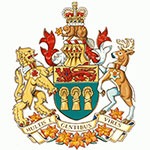Going to Court
Provincial Court | SaskatchewanCourts of Saskatchewan
Going to Court
Provincial Court
Adult Criminal Court
Being Charged
If you are charged with a crime, the police will give you a piece of paper with the date, time and place of your court appearance. It is important that you keep track of your court appearances so that you go to court every time that you are ordered to.
The paper may also tell you to go to the police station at a certain time and date so that your photo and fingerprints can be taken. It’s important that you follow these directions because if you don’t, you may get another charge for not obeying the order.
First Appearance
Almost everyone charged with a crime must go to Provincial Court. At your first appearance, the judge will ask you if you want the charge read to you. If you are sure you know what you’ve been charged with, you may choose to “waive the reading”, which means the judge will not read it to you. The judge will then ask you if you understand the charge. If you don’t, the judge will explain it.
The judge will also ask you if you are ready to enter a plea (i.e., guilty or not guilty), or if you need time to talk to a lawyer. At your first appearance, the court will usually grant an adjournment to give you time to talk to a lawyer if you need it.
If you speak to the judge, you should call him or her “Your Honour”.
If you want a lawyer to help you and you are able to contact one before you go to court, it may help you to deal with your charges faster and possibly reduce the number of times that you have to come to court. If you’ve seen a lawyer or made an appointment with one, bring any letters or information that your lawyer or his/her office gave you.
Legal Assistance
You may want to have a lawyer help you with your charges. In many cases, especially with more serious charges, this is a good idea. You should always consider talking to a lawyer before you enter a plea.
You can find private lawyers by looking in the phone book. If you want a lawyer’s help, but can’t afford a private one, you may apply for Legal Aid. You can contact Legal Aid Saskatchewan by calling 1-800-667-3764 and they will tell you what office to call, or visit the Legal Aid website and follow the directions there. Your eligibility for Legal Aid is based on your financial status and the type of charge. If you qualify, a lawyer will be assigned to your case.
Bail (Show Cause) Hearings
If you’ve been arrested and kept in custody by a police officer or Justice of the Peace, you’ll appear in Provincial Court as soon as possible. If the Crown prosecutor doesn’t agree to your release, you have the right to a Bail Hearing. You’ll probably want to have a lawyer help you with the hearing. In Regina, Saskatoon and many other court locations, Legal Aid represents anyone, regardless of their income, for a Bail Hearing.
At the bail hearing, a judge will decide whether you should be released (on bail) and what you must agree to do if you are released.
The judge will look at three things when deciding on bail. First, he or she looks at the chance that you will not show up for your next court date. Second, the judge looks at whether you are likely to do further crimes if released or if you are dangerous to the public. Finally, in some cases, the judge may not give you bail if he or she believes granting it would cause people to lose faith in the administration of justice.
At the Bail Hearing, the Crown prosecutor will tell the judge about your alleged involvement in the crime and about your criminal record, if you have one. You or your lawyer will tell the judge about yourself (your home, your family, where you work or go to school, etc.) and anything else that might help the judge to make a decision.
If you’re released, your matter will be adjourned to a later date when you’ll make your plea or choose the court you want to be tried in. If you aren’t released, you’ll be held on remand until your next court date. Earlier court dates are available for people who are held in custody while they are waiting for court.
Choosing a Trial Court
Summary charges are dealt with in Provincial Court. For most indictable matters, you have the right to elect (or choose) the type of trial. There are three choices:
- Trial in Provincial Court, by judge alone
- Trial in Court of Queen’s Bench, by judge alone
- Trial in Court of Queen’s Bench, by a judge and jury
The next step in the process depends on which kind of trial you choose and how you plead – guilty or not guilty.
Pleas – Guilty or Not Guilty
If you choose to be tried in Provincial Court, you will be asked whether you plead guilty or not guilty. If you plead not guilty, the judge will set a date for your trial. The judge will also ask the Crown to provide all information it has on the matter to you or your legal counsel. This is called “disclosure”. If you are acting on your own behalf, without a lawyer, you have the right to speak to a Crown prosecutor about your matter. If you have a lawyer, he or she will talk to the Crown instead of you.
If you plead guilty, the next step is sentencing.
Preliminary Inquiries
If you choose to be tried in Court of Queen’s Bench, you may have a Preliminary Hearing in Provincial Court. At the hearing, the Crown will have its witnesses give testimony about the event. Your lawyer – or you, if you don’t have a lawyer – will have a chance to cross-examine each witness. This is a chance to ask questions to test the truthfulness and memory of the witness. At the end of the hearing, the judge will decide if there is enough evidence to send you to trial to the Court of Queen’s Bench.
If there isn’t enough evidence, you may be discharged. That means that the matter will be ended.
The Trial
If you choose to go to trial in Provincial Court, you will want to start preparing for trial.
Witnesses
You may wish to call witnesses to testify on your behalf. If you do, you are responsible for making sure that they come to court on the day of the trial. You can ask them to come to court, or you may ask the court for a subpoena to be issued and served. A subpoena legally requires the witness to come to court. To get a subpoena issued, take a completed “Subpoena to a Witness” form to the court office. If you intend to subpoena more than one witness, have ALL the subpoena forms fully completed before going to the Provincial Court office.
When you submit your subpoena forms, a Clerk of the Court will ask you some questions. (Please note that staff will not issue blank subpoenas.) If the Clerk is not satisfied that the witness named in the subpoena can provide material evidence or testimony at trial then they will not issue the subpoena. In that event, you can complete a brief written summary of the evidence you believe the witness can provide at trial and ask that the request be put before a judge.
You are responsible for any costs associated with serving the subpoena.
At Trial
The Crown’s job is to prove that you’re guilty of the charges beyond a reasonable doubt. As an accused person, you don’t have to prove that you’re innocent of the charges. You don’t have to give any evidence or call any witnesses at your trial. However, you may decide that it’s in your best interests to do so, especially if the Crown appears to have a strong case against you. If you have a lawyer, he or she will advise you, but it’s up to you to decide.
It is the Court’s responsibility to make sure you have a fair trial and that all of your rights are protected.
Sentencing
If you plead guilty or are found guilty by the judge after a trial, you will be sentenced. In determining your sentence, the judge will consider all of the information he or she has about you and the crime, both positive and negative. This includes:
- Your personal situation (your age, whether you work or go to school, your family situation);
- The nature of the charge(s);
- The way the crime was committed;
- Your criminal record, if you have one;
- Victim impact statements; and
- Any other relevant information.
The judge may ask for a pre-sentence report to be prepared. This is a report to the judge by a Probation Officer after interviewing you and any victims of the crime(s). The report will make recommendations for sentencing, particularly if there are specific programs that would help you. The judge is free to choose whether or not to follow the recommendations.
Types of Sentences
The possible sentences the judge could pass include:
Absolute Discharge – You don’t receive any fine or sentence, and there is no criminal record.
Conditional Discharge – You are placed on probation for a certain length of time, during which you have to follow certain conditions. These could include:
- paying restitution,
- working community service hours,
- having no contact with certain people, and
- taking specific programs.
After the probation period is over and you’ve met all of the conditions, the discharge becomes complete, which means that you will have no criminal record.
Probation– This often includes a condition that you report to a Probation Officer immediately and then again afterward as often as the officer tells you. Some other conditions may include:
- an alcohol or drug assessment and/or treatment,
- taking programs for anger management or domestic violence,
- not using alcohol or drugs,
- not contacting certain people or being at certain places, and
- any other conditions that are appropriate to the crime and your situation.
Fine – If you are given a fine, you will be given time in which to pay it. If it is not paid within that time, you could end up in custody. You can pay the fine or you might be able to register to do community service instead under the Fine Option Program.
Suspended Sentence – This is where the judge doesn’t pass a sentence right away, but places you on probation, usually with a number of conditions, as mentioned above. If you don’t follow the conditions, you may end up back in court and receive a different, tougher sentence.
Conditional Sentence – This is where you serve your time in custody within the community. If you don’t follow the conditions the judge orders, you may end up serving your time in custody.
Custodial Sentence – This where you serve a period of time in a provincial correctional centre or a federal penitentiary.
When you are sentenced, the judge will add a surcharge – or fee – that goes toward helping victims of crime.
Appeal
You have the right to appeal within 30 days of the passing of a sentence.
*The foregoing information is for general educational purposes and is not meant to be used as advice in respect to the conduct of any particular case or proceeding against a person. Please contact a lawyer for specific information.
More Information
- Canadian Judicial Council Criminal Law Handbook for Self-Represented Accused

